ARMENPRESS Exclusive with Kip Thorne: Time travel, multiverse, and upcoming movie “quite different” from Interstellar
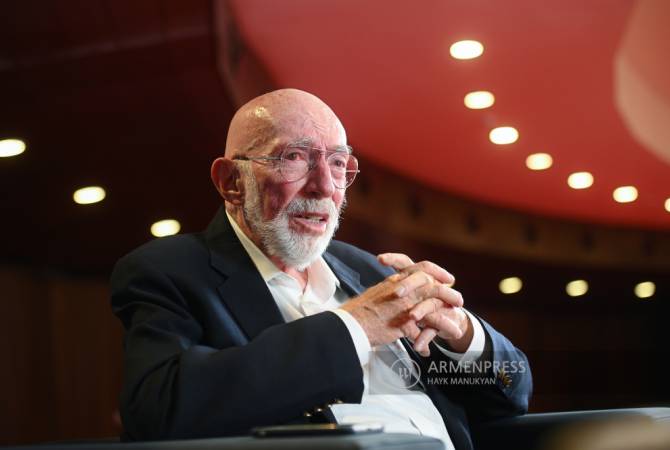 10:27, 30 September 2022
10:27, 30 September 2022YEREVAN, SEPTEMBER 30, ARMENPRESS. For a very long time people have been wondering if time travel is actually possible, to go back to the past and witness any historic period or travel into the far future.
In the 20th century, with the development of the general theory of relativity, scientists tried to give answers to these questions. Among them is American theoretical physicist Kip Thorne, who argues that the wormholes in universe could be used for time travel. This idea was spectacularly visualized in the 2014 Christopher Nolan film Interstellar, for which Thorne served as scientific consultant and executive producer.
Thorne was awarded the 2017 Nobel Prize in Physics along with Rainer Weiss and Barry C. Barish "for decisive contributions to the LIGO detector and the observation of gravitational waves".
LIGO - the Laser Interferometer Gravitational-Wave Observatory – which was created in 1984 with Thorne’s participation, detected a signal at 09.51 UTC on 14 September 2015 of two ~30 solar mass black holes merging about 1.3 billion light-years from Earth.
Thorne visited Armenia for the STARMUS VI Festival.
In an ARMENPRESS Exclusive, the renowned theoretical physicist spoke about time travel, the hypothesis of multiverse, scientific achievements and his current projects.
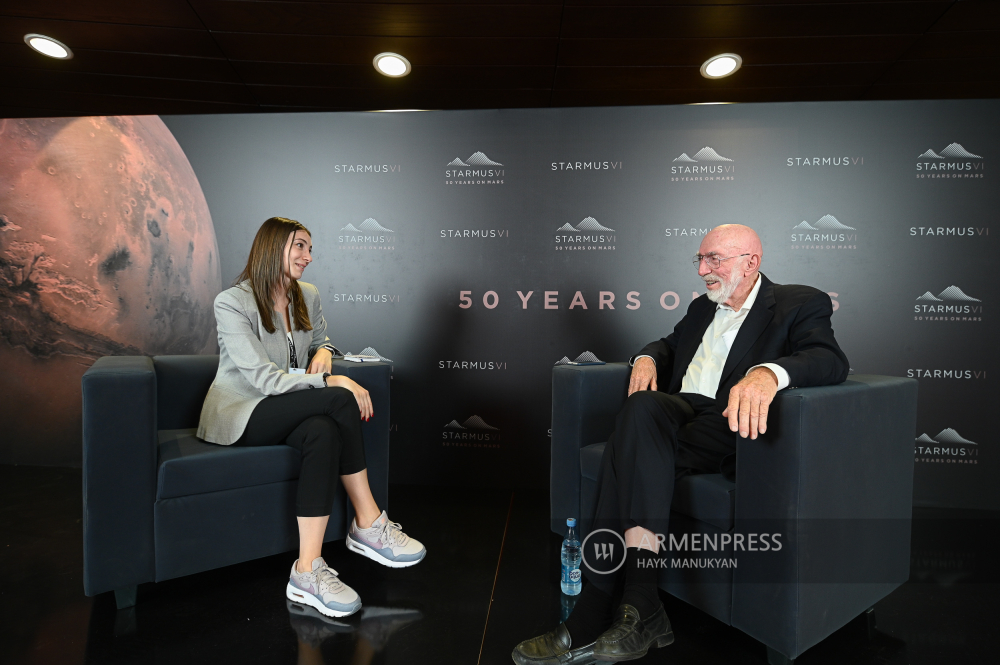
ARMENPRESS: Professor Thorne, your research on gravitational waves and black holes changed the perception of the Universe. Many of us at nights look up at the sky trying to understand what is there in the unknowns of the Universe. What do you think when you look at the sky?
Kip Thorne: When I look at the sky, I recognize - and I always have at least as an adult - that what we see is such a tiny portion of what is there, that our eye and mind should be open to wide possibilities to go far beyond what we see with our eyes or other optical electromagnetic telescopes. Certainly now with gravitational wave telescopes, we for first time are beginning to have direct contact with objects, black holes, that emit no light, no electromagnetic waves that made warp space and time. For me, the key thing about this is recognizing that objects that have interesting properties, rich properties can be made from warp space and time without any matter being present, or can be made from a mixture of matter warp space and time. So the Universe is much richer than we have thought a few decades ago.
ARMENPRESS: What’s your attitude towards the hypothesis of multiverse taking into account the fact that it’s virtually impossible to determine whether it’s actually real or not?
Kip Thorne: I think it’s a real possibility, but I’m certainly not convinced that it exists. But I do believe that there’s a possibility, but we don’t have observation data, as you say, that enable us to answer the question.
ARMENPRESS: Professor Thorne, you’re very frequently asked whether time travel is possible or not. But my question to you is the following; if time travel is possible, where would you want to go, which part in time?
Kip Thorne: I think I would like to go to the far future to see what happens and then come back. And going to the far future is certainly possible. We don’t have good enough technology to go there very fast. But it’s the return that is the problem.
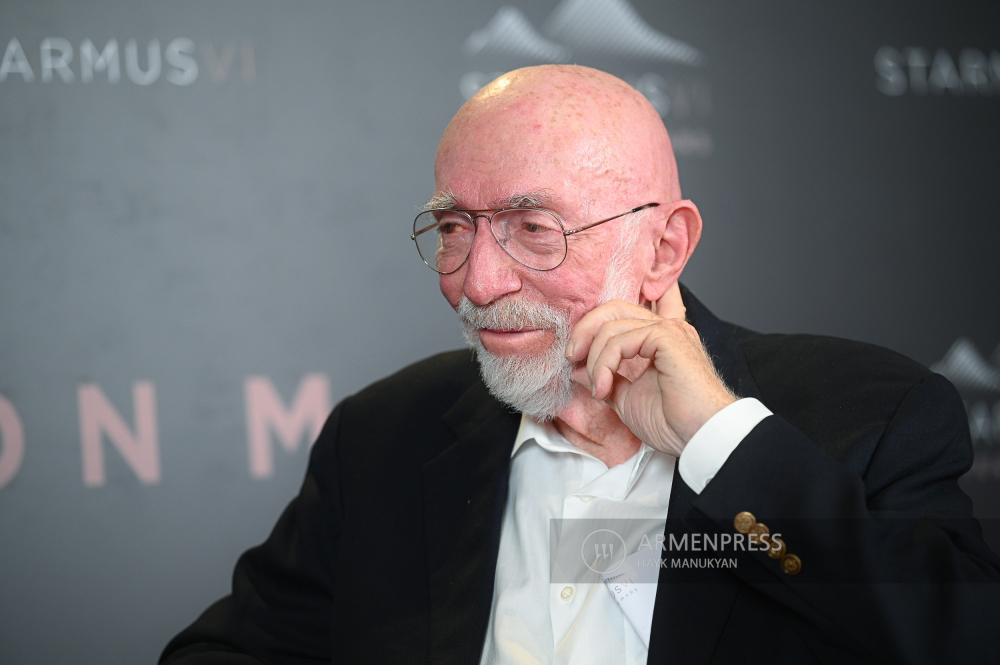
ARMENPRESS: In your opinion, where can space exploration take humanity in near future?
Kip Thorne: I think the mixture of robotic exploration, exploration with telescopes, including gravitational wave detectors and human exploration is really the future. I think human exploration is important as well. I am particularly intrigued by the possibility that in the next few decades it may be possible to send very tiny robotic missions to Proxima Centauri, Alpha Centauri system, and carrying telescopes that image what’s there once they fly through, and that I think will change our whole mental point of view on interstellar travel, just to have done it with the tiny robotic mission. I know that many scientists think it’s ridiculous to put the effort into sending humans into Space and other planets. Well, I disagree. I think humans don’t bring us much. Robots are probably better for scientific exploration, but there’re strong cultural reasons to send humans. Humans have a desire built into us, deep curiosity, desire to explore. I think those cultural reasons are very valid reasons and go beyond the specific geophysical and biological science exploration that could be done robotically.
ARMENPRESS: What do you consider the greatest scientific achievement of the 21st century?
Kip Thorne: I don’t know what it’s going to be in terms of scientific achievement. I think that the greatest technological achievement is going to be the mature quantum information science. Transition from classical computers to quantum computers, from classical cryptography to quantum cryptography. From classical measurement technology to quantum measurement technology. That’s going to radically change human technology and everyday life, as well as in high-tech over the coming century.

ARMENPRESS: What’s the best advice you love to give to your students?
Kip Thorne: Two pieces of advice. Well, one piece of information. If you want to study science and do interesting things in science, you have to work very, very hard. That means to do that successfully you need to enjoy it. My grandfather told me when I was 4 years old - If I got a job, that was like play than I would be a big success. And I believe that’s true. That having a job like I have had as a scientist is enormous fun and has been a big key to what success I have. So when my granddaughter decided she wanted to be a physicist, I told her ‘You don’t love it enough. You use it as a springboard to go to other directions, but if you find yourself something that is tremendously fun, that you are going to love’. Finally she did find something in physics that she loves that she’s still doing in physics. This issue – doing something that you are gloriously enthusiastic about, is very important.
And the second, third thing beyond those two, you have to work hard… Although you’re likely to need to and may want to focus quite narrowly in order to have big success in some direction, it’s very important to spend some of the amount of time, a few percent or even a few tenths of percent of your time looking broadly so that you discover new opportunities you would never thought of, which may cause you to make major changes in direction as a scientist and may radically change what you do and enable you to do amazing things that you would never had done if you hadn’t identified unexpected opportunities. So, spend some amount of time and effort looking broadly although your research may be focused very narrowly.
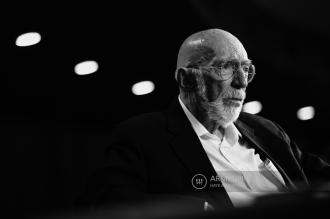 Kip Thorne
Kip Thorne
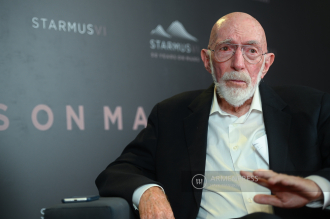 Kip Thorne
Kip Thorne
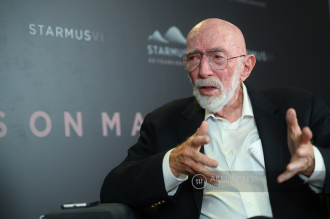 Kip Thorne
Kip Thorne
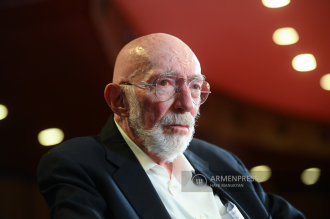 Kip Thorne
Kip Thorne
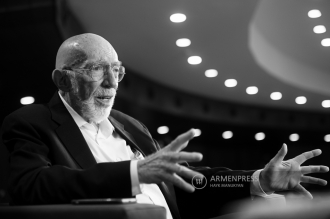 Kip Thorne
Kip Thorne
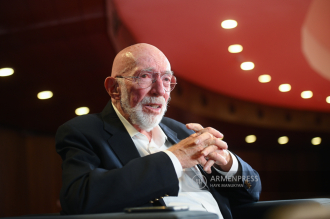 Kip Thorne
Kip Thorne
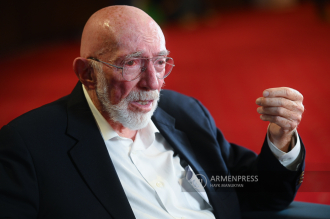 Kip Thorne
Kip Thorne
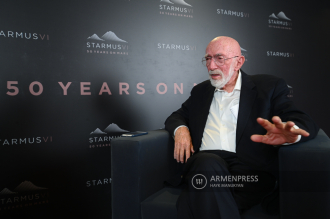 Kip Thorne
Kip Thorne
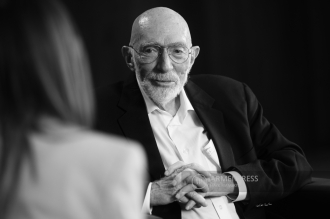 Kip Thorne
Kip Thorne
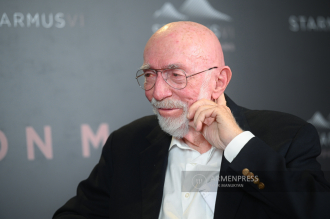 Kip Thorne
Kip Thorne
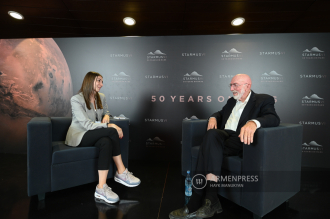
ARMENPRESS: What are you working on now?
Kip Thorne: I am 82, I made the decision a few years ago that I would do things that are fun, that I love, that are very different from what I have done. So, well, one thing that I’m doing, is I’m writing with five other colleagues a history of the LIGO gravitational wave project, the history that is intended largely for future historians. Because it was in some way the hardest thing that has ever been done in science. It took 50 years, to tie the things that we’ve done, and the mistakes we made in the wrong direction, as well as in the right direction, to the documentation of unpublished reports. So that’s one thing I’m doing.
I’ve just finished and sent to a publisher together with Lia Halloran a book of my poetry and her paintings. So I’ve decided for a couple of years I’ll be a poet.
I’m working on a movie, second movie after Interstellar, because I enjoyed that. The poetry, and painting book and the both movies – Interstellar and the current movie, they’re enormously enjoyable. They are collaborations with people who are very different than I am. And they have the possibility to be highly inspiring to non-scientists.
ARMENPRESS: Can you disclose details from the upcoming movie?
Kip Thorne: All I can say is that’s a science fiction movie that’s quite different from Interstellar.
Interview by Araks Kasyan
Photos by Hayk Manukyan




















